We independently evaluate all recommended products and services. If you click on links we provide, we may receive compensation.
You’re probably aware that pushing your bedtime back an hour or two to catch the latest episode of your favorite show may leave you with puffy-looking eyes in the morning. But skipping out on sleep isn’t the only thing that can cause puffy eyes — and if you wake up with heavy, tired-looking peepers even after a solid eight hours of shut-eye, it may be worth looking into what else can contribute to puffiness. Because, as it turns out, your sleeping habits are only a small part of the puzzle.
To find out what (else) can cause puffiness, we chatted with licensed master aesthetician and Blue Water Spa founder Rachel Lozina. Ahead, learn about the common causes of puffy eyes, plus some of Lozina’s best expert tips on nixing puffiness fast — even if you’re running on five hours of sleep.
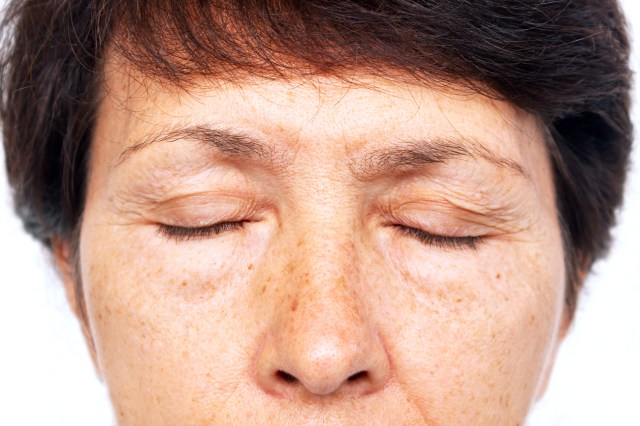
What Can Cause Puffy Eyes?
“There are many things that can contribute to puffiness under the eyes,” Lozina says. Puffiness can be either transient — meaning it only pops up occasionally — or persistent, meaning it’s always there. If you have persistent under-eye bags or can’t remember a time they weren’t there, it’s likely genetic. Some factors, however, may worsen their appearance. Keep scrolling to learn what can cause (or worsen) puffy-looking eyes.
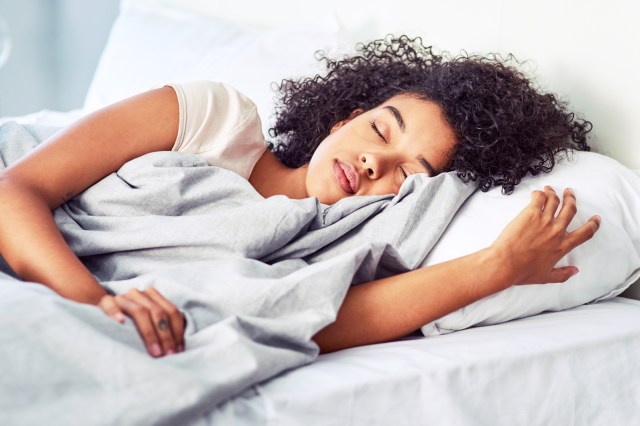
1. You’re Not Sleeping Enough
We’ll start off with the most well-known cause of eye puffiness: sleep deprivation. Experts typically recommend getting between seven and nine hours of sleep per night. Logging less than that may cause the area beneath your eye to swell, resulting in puffy, tired-looking eyes. It’s worth noting that poor sleep quality can affect other parts of your appearance, too. One study published in the medical journal Sleep found that sleep deprivation can also exacerbate dark circles and make fine lines and wrinkles appear more prominent.
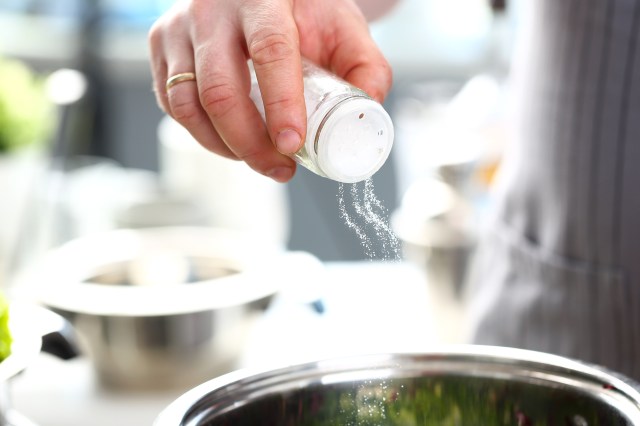
2. You’re Overdoing the Salt
In the same way that eating too much salt can make you feel bloated, it can also leave your eyes — and the rest of your face — puffier than normal. That’s because we retain excess water when we consume a lot of sodium (it’s your body’s way of maintaining balance). The good news: Puffiness due to fluid retention should dissipate fairly quickly. If you’re feeling puffy after one too many fries, the Cleveland Clinic suggests drinking plenty of water to help flush your system.

3. You Drink Alcohol
Alcohol is inherently dehydrating, and as with salt, overconsumption can lead to fluid retention, particularly in your face. Pair that martini with a late-night salty snack, and you’re likely going to be facing some serious puffiness come sunrise. If you drink, it’s a good idea to limit your intake: The Centers for Disease Control and Prevention (CDC) recommends having no more than one drink per day if you’re biologically female, or two if you’re biologically male. Be sure to drink plenty of water before and after each drink to stay hydrated and keep puffiness at bay.

4. You Have Allergies
If you find yourself facing puffiness only during certain seasons — such as in the spring — seasonal allergies may be to blame. Pollen can irritate your eye area, causing your eyes to become red, itchy, or swollen (and the more you rub your eyes, the worse the puffiness is likely to become). If your allergy symptoms are severe or interfere with your daily life, you might want to consider asking your doctor whether allergy medication is right for you.
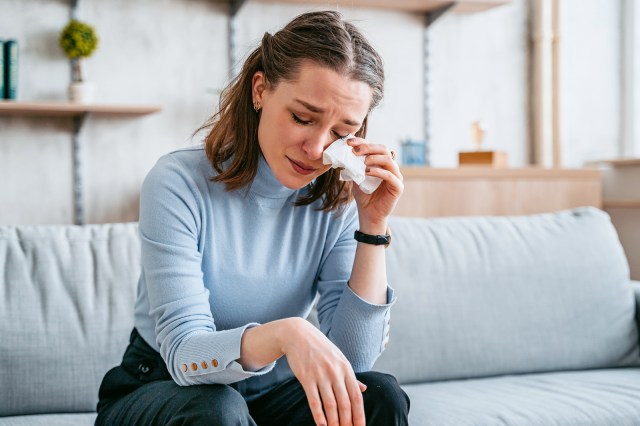
5. You Were Crying
Shedding a few tears probably won’t lead to puffiness, but if you’re having a full-on sob fest, you should prepare for puffy-looking eyes later on. A serious crying session can lead to fluid retention and cause your eyes (and other parts of your face) to appear puffier than usual. Fortunately, the effect is temporary — you just have to wait for the excess fluid to drain. (We’ll offer some tips on speeding up the process in a bit).

6. You Hit a Certain Age
Puffiness isn’t always caused by something you’re doing (or not doing, in the case of sleeping). Sometimes, it’s just part of the natural aging process. “As we age, we lose a significant amount of collagen in our skin, and it shows up the most in the under-eye area,” Lozina says. This loss of collagen can make the skin and tissues around your eye sag, which may make under-eye bags appear more prominent.

7. You Have a Medical Condition
Finally, certain medical conditions, such as thyroid disorders, kidney disease, and dermatitis can cause or exacerbate puffiness around the eyes, per the Mayo Clinic. If you have swollen, puffy-looking eyes more often than not — or the puffiness is persistent — it’s a good idea to check in with your doctor to rule out any medical causes.
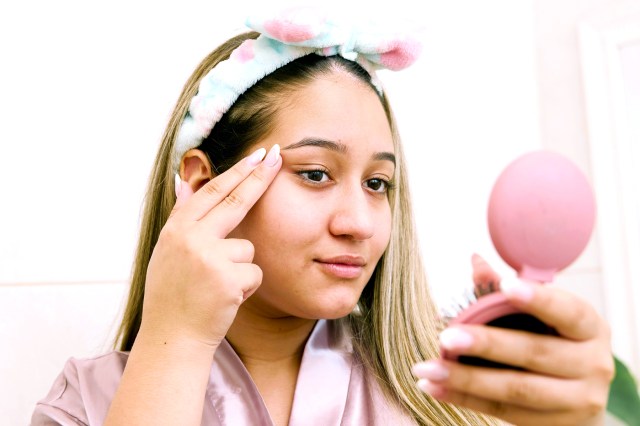
What Can You Do To Reduce Puffiness?
If your eyes are looking puffier than you’d like after one too many late-night snacks or glasses of wine, keep reading — here are a few of Lozina’s tried-and-true tips for de-puffing tired-looking eyes.
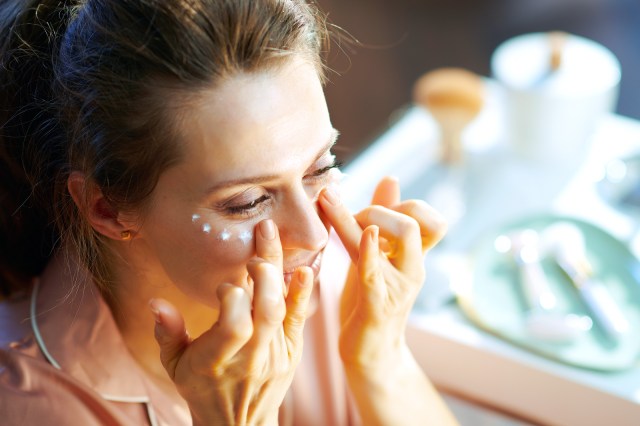
1. Try a Caffeine Eye Cream
To help target puffiness under the eyes, Lozina recommends looking for products that “contain ingredients like caffeine, cucumber extract, aloe vera, or hyaluronic acid, which can help tighten and hydrate the under-eye area.” She’s a fan of Mario Badescu Caffeine Eye Cream, which contains caffeine, hyaluronic acid, and squalane to help de-puff, firm, and hydrate tired-looking eyes. For those willing to splurge, she recommends Valmont V-Firm Eye Firming Cream. “This eye cream rivals the most expensive and luxurious eye creams on the market,” she says. While it’s definitely on the pricier side, a little goes a long way — you just need half a pump of the peptide-infused formula for each under-eye.
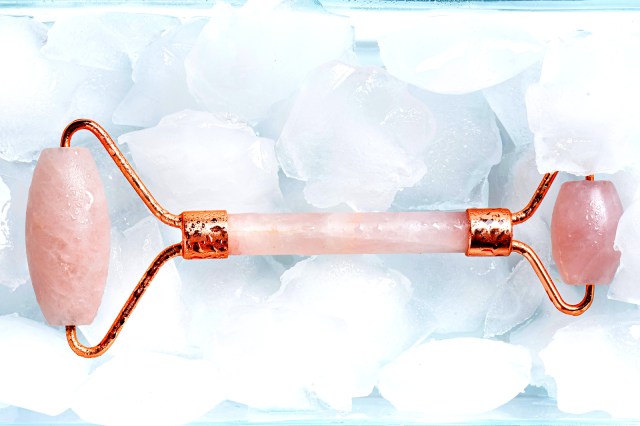
2. Use Ice Rollers
While we don’t recommend putting ice cubes directly on your skin, Lozina says that using cooling products “such as ice globes, cold spoons, or refrigerated moist green tea bags [can] also help reduce under-eye puffiness.” The cold helps constrict blood vessels, reducing swelling to promote a firmer, tighter under-eye area. Try massaging your under-eyes with a chilled roller after applying your eye cream, or reach for cooling under-eye masks for a similar de-puffing effect. Lozina recommends Grace & Stella Energizing Eye Masks — just pop them in the fridge for five minutes, then put them on for instant de-puffing.
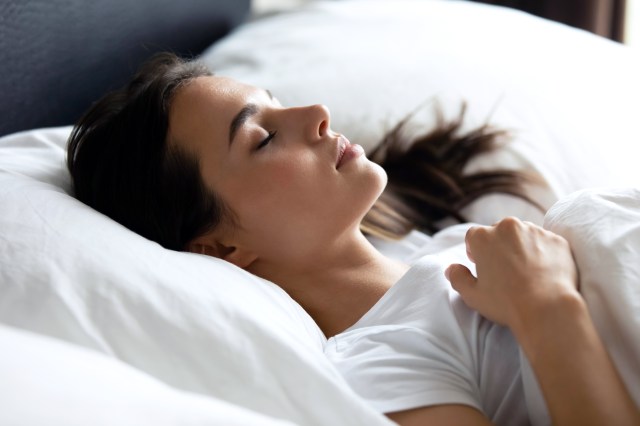
3. Sleep With Your Head Elevated
If you’re a belly sleeper, it may be time to rethink how you snooze. To combat puffiness, Lozina suggests sleeping on your back with your head slightly elevated. This can help “prevent the lymphatic fluid from pooling in the eye area,” leaving you with fresher-looking eyes come morning.
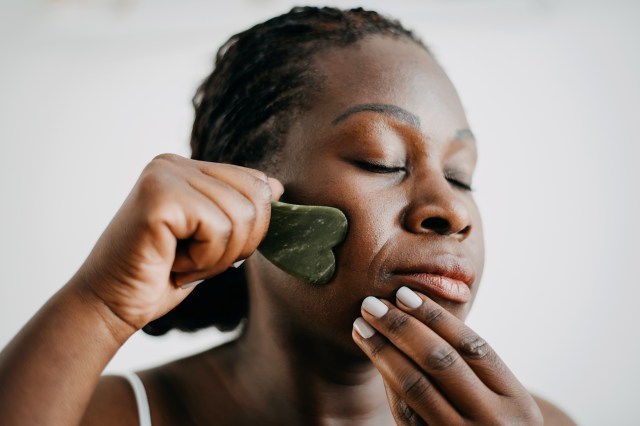
4. Try a Facial Massage
Lastly, consider using a gua sha tool once daily — Lozina says the practice “helps drain lymphatic fluid” and can help minimize puffiness. She recommends using a gua sha tool made of jade or rose quartz and applying a facial oil before beginning your routine. “The oil helps to reduce friction and allows the gua sha tool to glide smoothly over your skin,” she explains.
This article is for general informational purposes only.
Affiliate Disclaimer Medical Disclaimer



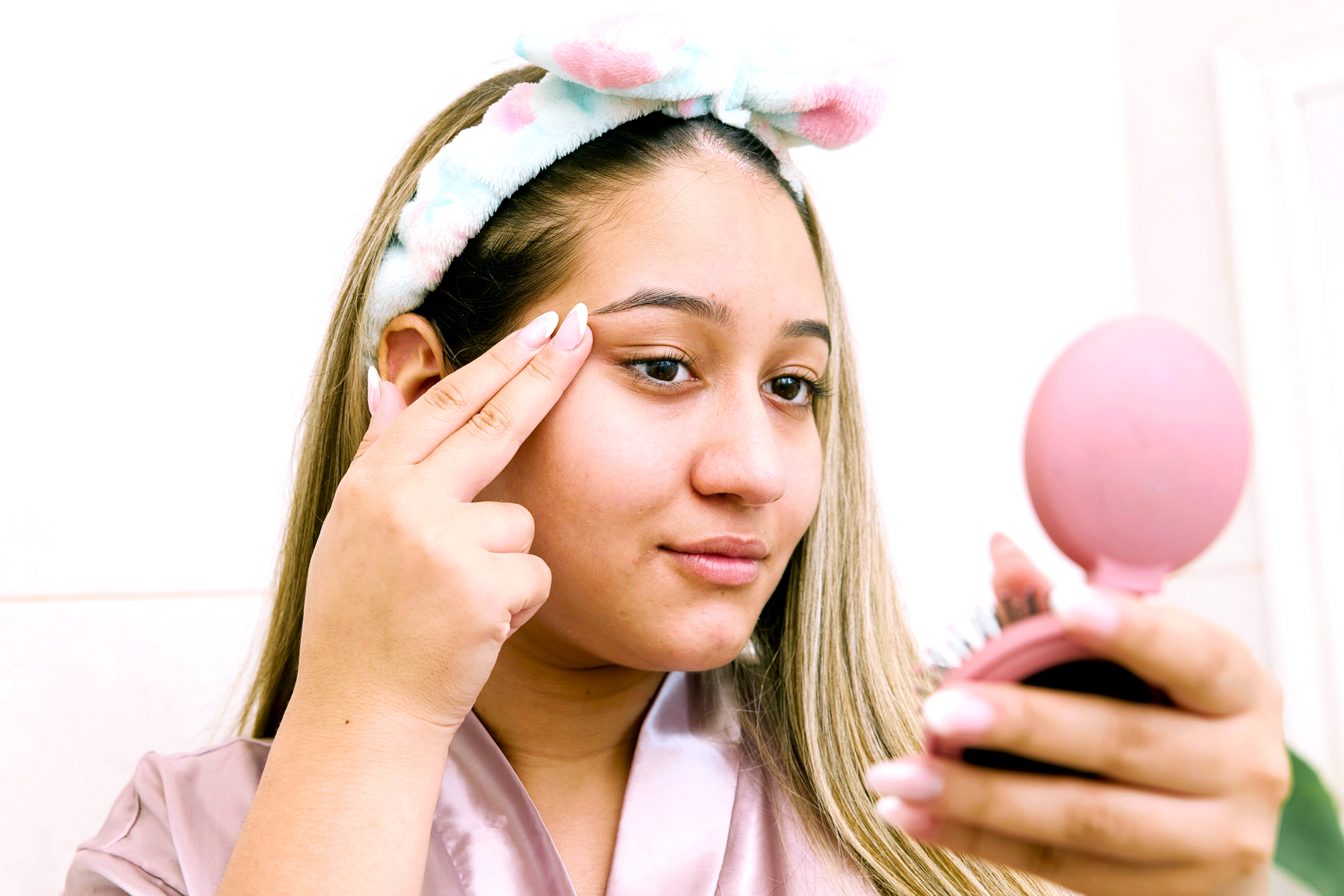

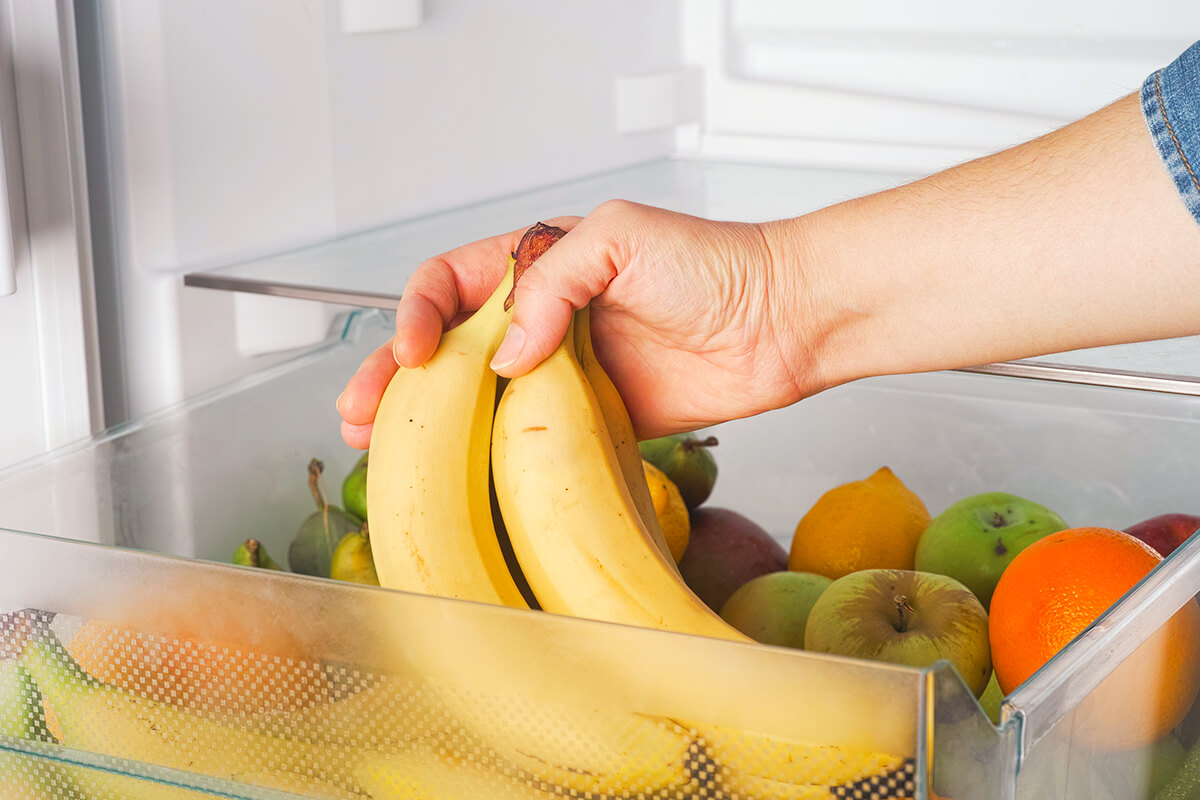




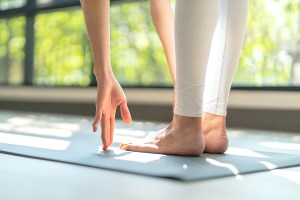





 Unique Beauty is free for all users.
Unique Beauty is free for all users.